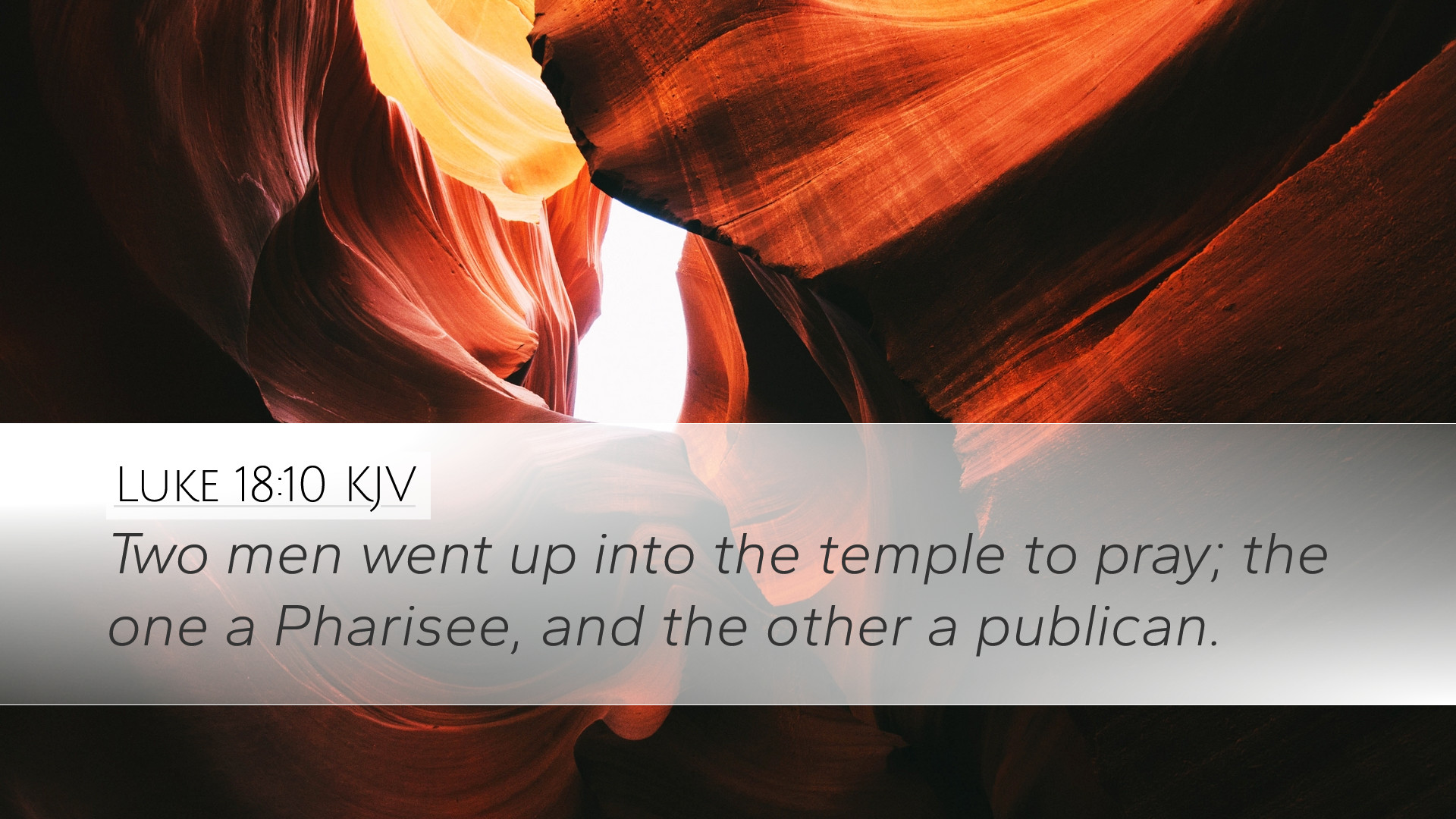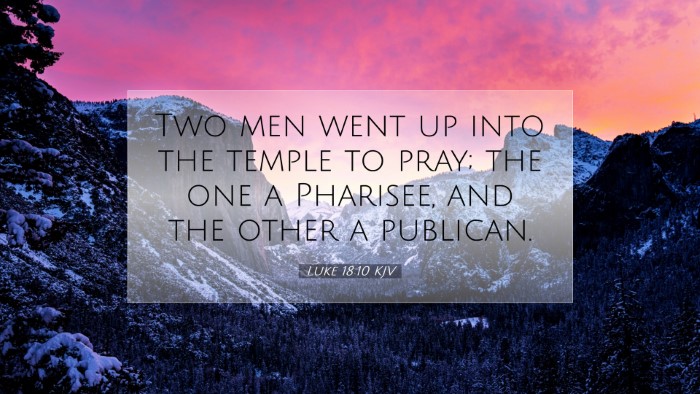Commentary on Luke 18:10
Verse: "Two men went up to the temple to pray; the one a Pharisee, and the other a publican."
Introduction
The parable of the Pharisee and the publican is a striking illustration of the contrasting attitudes of pride and humility in relation to prayer. This parable, as outlined by Jesus, provides a profound lesson pertinent to both individual spirituality and corporate worship. The characters involved serve as archetypes for understanding righteousness, self-perception, and divine grace.
Contextual Analysis
This passage falls within a series of teachings on humility and the nature of true righteousness. Biblical scholars recognize that Jesus often engaged with figures of authority and piety to challenge prevalent notions of righteousness. The Pharisee represents a strict adherence to the Law, while the publican embodies societal rejection and moral unworthiness.
Insights from Matthew Henry
Matthew Henry emphasizes the significance of the setting: "Two men went up to the temple to pray" highlights both the act of prayer and the contrasting dispositions of the men. The Pharisee approaches prayer with self-righteousness, whereas the publican approaches with humility. This contrast serves to illustrate that one’s position before God is not determined by societal status but by the condition of the heart.
- Self-Righteous Attitude: The Pharisee's prayer is rife with self-congratulation, focusing on his own merits rather than God’s grace.
- Humility of the Publican: The publican’s posture, far removed from self-aggrandizement, exemplifies true repentance and reliance on God's mercy.
Insights from Albert Barnes
Albert Barnes notes that the Pharisee’s prayer represents a “ceremonial righteousness." He points out that the Pharisee believes himself to be in a state of excellence, engaging in a form of worship that lacks sincerity. This attitude starkly contrasts with the publican, who, understanding his unworthiness, confesses, "God be merciful to me a sinner.” Barnes elucidates that the format of prayer here has significant theological implications—it is less about ritual performance and more about heart alignment with God’s grace.
- True Value of Prayer: Prayer should not merely be a means of self-exaltation but an opportunity to draw upon God's mercy.
- Divine Perspective: While the Pharisee appeals to his own achievements, it is the publican who genuinely seeks God's favor.
Insights from Adam Clarke
Adam Clarke’s commentary invites readers to consider the implications of the characters involved in this parable. He points out that the publican, as a tax collector, was despised by society and seen as a sinner, yet his approach to God reveals an understanding of his own sinful nature. Clarke emphasizes the essential nature of humility in approaching God. He further illuminates that the purpose of prayer should be to acknowledge one's dependence on God rather than elevate oneself above others.
- Contrast of Social Status: Clarke emphasizes that according to the world’s standards, the Pharisee should receive God’s favor due to his piety.
- Redemptive Humility: The publican’s cry for mercy is a crucial exhortation for all believers to recognize their need for grace.
Theological Implications
The parable teaches key theological principles regarding prayer, humility, and the nature of justification before God. It reminds believers that:
- Righteousness is Not Self-Made: True righteousness comes from God, and is granted to the humble.
- The Role of Grace: All are in need of grace, regardless of our perceived standing in society.
As the passage concludes later in Luke 18, it is the humble who will be exalted, reinforcing the core message of this parable.
Practical Applications
For pastors, students, theologians, and scholars, the reflections on this passage present several applications:
- Encouraging Humility: In preaching and teaching, emphasize the need for humility in all aspects of life, reminding congregations that no one is beyond the reach of God’s grace.
- Prayer Life Reflection: Encourage individuals to examine their own prayer lives, noting whether they approach God with a spirit of humility or self-righteousness.
- Community Dynamics: Foster church environments that embrace humility and discourage prideful comparisons among congregants.


